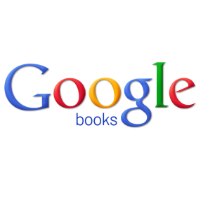Judge Sees No Copyright Violation in Google’s Massive Book-Scanning Operation

Google can legally scan and upload millions of books on the Internet without authors’ permission, a federal judge ruled this week.
In a case brought against Google by the Authors Guild and other plaintiffs, Judge Denny Chin of New York ruled the scanning does not violate U.S. copyright law because the company met the conditions of “fair use.”
“In my view, Google Books provides significant public benefits. It advances the progress of the arts and sciences, while maintaining respectful consideration for the rights of authors and other creative individuals, and without adversely impacting the rights of copyright holders. It has become an invaluable research tool that permits students, teachers, librarians, and others to more efficiently identify and locate books. It has given scholars the ability, for the first time, to conduct full-text searches of tens of millions of books. It preserves books, in particular out-of-print and old books that have been forgotten in the bowels of libraries, and it gives them new life. It facilitates access to books for print-disabled and remote or underserved populations. It generates new audiences and creates new sources of income for authors and publishers. Indeed, all society benefits,” Chin wrote in his opinion (pdf).
The judge acknowledged, in his ruling, that Google profits from its massive book-scanning operation, but said that is outweighed by the fact that Google’s use of the world’s books is limited, and that its service benefits society.
“Google does, of course, benefit commercially in the sense that users are drawn to the Google websites by the ability to search Google Books,” wrote Chin. “While this is a consideration to be acknowledged in weighing all the factors, even assuming Google’s principal motivation is profit, the fact is that Google Books serves several important educational purposes.”
Chin noted that Google is not engaged in direct commercialization of books. In fact, he said, they only display snippets, don’t sell those snippets, and don’t run ads on the pages that feature the snippets.
The plaintiffs said they would appeal the decision, which capped an eight-year legal battle.
“We disagree with and are disappointed by the court’s decision today,” Paul Aiken, the Authors Guild executive director, said in a prepared statement. “This case presents a fundamental challenge to copyright that merits review by a higher court. Google made unauthorized digital editions of nearly all of the world’s valuable copyright-protected literature and profits from displaying those works. In our view, such mass digitization and exploitation far exceeds the bounds of fair use defense.”
Last year, Google agreed to seek permission from rights holders of university library books before scanning them, but it has not sought such authorization from the owners of non-library books.
If Google had lost the case, it would have had to pay an astronomical amount in damages—$150,000 per infringement—according to the requirements of copyright law (pdf).
-Noel Brinkerhoff, Danny Biederman
To Learn More:
Google’s Book-Scanning Is Fair Use, Judge Rules in Landmark Copyright Case (by David Kravets, Wired)
The Authors Guild, Betty Miles, Joseph Goulden and Jim Bouton v. Google Inc. (U.S. District Court, Southern District of New York) (pdf)
Google Gives Up Fair-Use Defense, Settles Book-Scanning Lawsuit With Publishers (by David Kravets, Wired)
- Top Stories
- Unusual News
- Where is the Money Going?
- Controversies
- U.S. and the World
- Appointments and Resignations
- Latest News
- Trump Orders ICE and Border Patrol to Kill More Protestors
- Trump Renames National Football League National Trump League
- Trump to Stop Deportations If…
- Trump Denounces World Series
- What If China Invaded the United States?






Comments